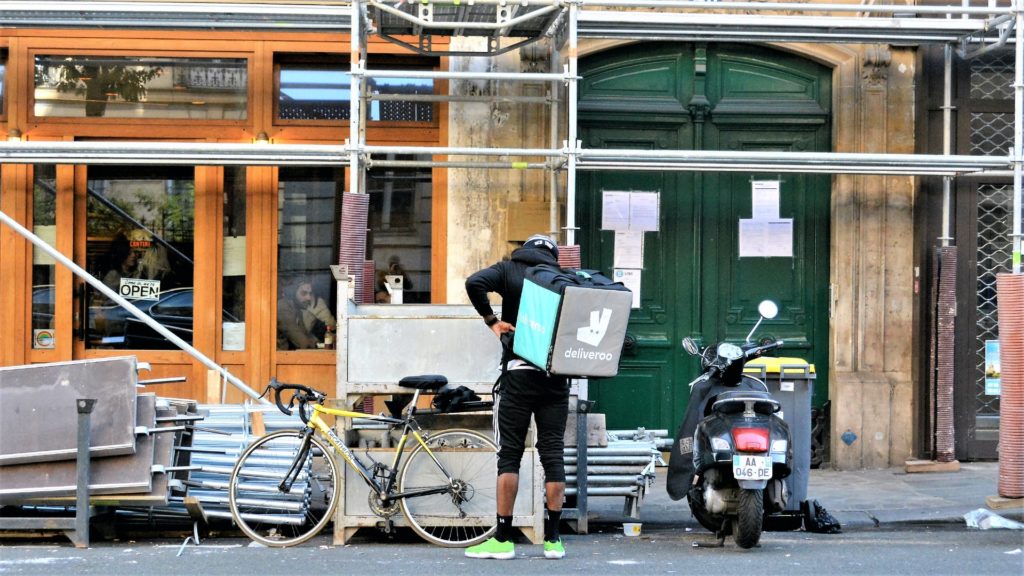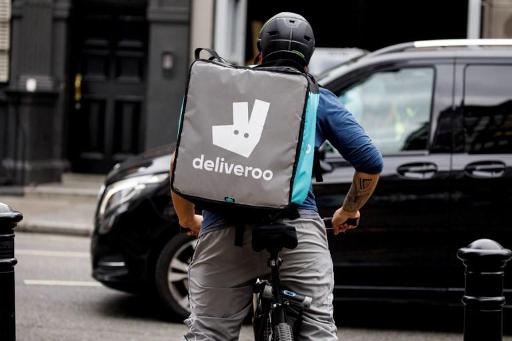As Belgium and other Western European countries grapple with the growing gig economy and those working without a social safety net, researchers with the Vrije Universiteit Brussel (VUB) sought to add data to the debate.
“There's so little quantitative information about this group of workers and everyone is writing about it,” VUB researcher Elief Vandevenne told The Brussels Times.
The central question – which could be decided as Deliveroo faces a lawsuit in a Brussels court – is whether food-delivery platforms are within the law by having their couriers register as self-employed, a classification that denies workers access to social rights and places them in a more precarious position than traditional employment.
Long hours, little protection
“It’s not just the insecure contract, but the long and irregular working hours, the low income, the fact that they’re often not a member of a union, their lack of knowledge about how exactly the app allocates rides, the lack of insurance in case of a work-related accident, etc.,” Vandevenne said.
All of these factors make the delivery jobs precarious and without the standard securities of a more conventional line of work: a permanent contract, full-time employment, sufficient paid work and traditional 9-to-5 working hours.
But apart from determining that food courier jobs are indeed more precarious than other types of employment, Vandevenne’s research also linked that precarity to poor mental health among Brussels couriers.
“We found a relationship with their general well-being: couriers with very precarious jobs tend to have a poorer general wellbeing.”
Related News
- Parliament demands equal social protection for gig workers
- Still no reform: A summer of broken promises for Uber drivers
- Trial against Deliveroo begins in Brussels
Rented identities
A survey of 170 Brussels food couriers gave Vandevenne further insight into some of the widespread practices in the profession that add to the job's instability.
One issue is the prevalence of undocumented migrants and minors who rent accounts from people with the right to work in Belgium in order to circumvent laws that otherwise would prevent them from earning an income.
“The renting of courier accounts turns out to be a common practice, especially among undocumented couriers and minors,” Vandevenne said.
While renting accounts in and of itself isn’t illegal, doing so to someone unauthorised to work in the EU is.
“That there are couriers working with fake accounts is something we knew, but of course when you actually do some fieldwork and you get to meet the undocumented migrants working with a fake account, it’s striking.”
The result is that the person renting the account from someone else is left “completely dependent on the person who’s renting you the account,” Vandevenne said, which adds to their insecurity: “If something happens, you're stuck in a very precarious situation.”
Vandevenne sees this as a consequence of platform work being a low-boundary job, which is often a selling point for people who would otherwise struggle to find traditional employment.
“It's easy to create an account, and then if you want to sublet it online, I don't think there's that much control.”
Deliveroo announced that they would try to combat this type of account fraud by using random face-checks, where couriers are asked to send a selfie proving it’s really the account owner making the delivery.
How data reveals reality
Not every courier faces the same degree of precarity – those using their accounts within the terms and agreement of the app and as an additional source of income are not facing the same challenges as other users, for whom apps like Deliveroo or UberEats are full-time jobs.
“People are doing this as a singular job and that's precarious – to depend on income that's not stable,” said Vandevenne.
She emphasised the need for more data from a larger sample size to draw conclusions about the percentage of food couriers in Brussels that are working illegally.
“It’s not a representative sample nor is it the biggest, however, it’s data. At least it's something, some kind of quantitative information,” said Vandevenne, who pointed out that the couriers, especially migrants and minors, represent “a very hard-to-reach population.”
“This abstract concept of precariousness may be vague to people outside academia, but it's mappable,” she said. “That we could map it and link it to something as concrete as their wellbeing is great.”


